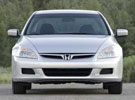 Why do people think they've made some sort of major accomplishment by cutting up a credit card? They still owe the debt that they probably accumulated on it. The account is still active. They can still use the number.
Why do people think they've made some sort of major accomplishment by cutting up a credit card? They still owe the debt that they probably accumulated on it. The account is still active. They can still use the number.This "cutting up your credit card" nonsense is the exact kind of advice that the so-called experts give to young people. In their usual condescending way, they think that young people just don't have the ability to resist the temptation of maxing out their credit cards buying drinks for strangers at a bar. For the millions of you who actually do know how to control your spending, you should consider never using your debit card.
Many people think that using a debit card is much more responsible than using a credit card. I think they're wrong.
For people who have no credit card debt, you should almost never use a debit card. First and foremost, you are much more likely to avoid a nightmare with a credit card if there is any fraudulent activity.
Fraudulent debit card use can wipe out your entire bank account. While the legal limit for fraudulent use for most cards is $50, your bank might take up to 10 days to investigate the fraudulent use before returning the money into your account. By that time, you might have written rent, utility, and other checks that you are now bouncing, leading you to excessive late fees and overdraft charges. The bank might also decide to further investigate, leaving you without any money for quite a bit of time.
While you might not think this could happen to you, identity theft and debit card fraud happen more often than you might think. With fraudulent credit card use, you will discover the fraud before a penny is taken out of your bank account. When you dispute the charge to the credit card company, it is immediately taken off your bill until the investigation is complete. The burden of proof lies with the credit card issuer, not you.
But safety aside, there are some of the many other advantages of using a credit card over a debit card:
1) Earn rewards.
Whether it's frequent flier miles or cashback or money for charity, credit card issuers routinely offer a rewards program for using a credit card.
2) Build a credit history.
Using credit cards and paying your bills allows you to increase your credit score, allowing you to get lower interest rates for student loans, auto loans, mortgages, and more. (Debit cards can't really help you with this.)
3) Protect yourself from scams or defective products.
If you buy something that was not defective and the merchant accept your return, tell your credit card issuer, and they will investigate. If you're found to be right, they will withhold payment to the merchant and you won't be liable for the charge. This is especially important when purchasing something online.
4) It's a free loan.
Charging your purchases on a credit card allows you to earn interest on your checking account balance, since you get an interest-free grace period between the closing of your statement and your payment due date. Debit cards, on the other hand, take money out of your account immediately.
While debit cards might have a little less paperwork to deal with, most of us -- especially people who pay off their balance every month -- are far better off swiping a credit card.